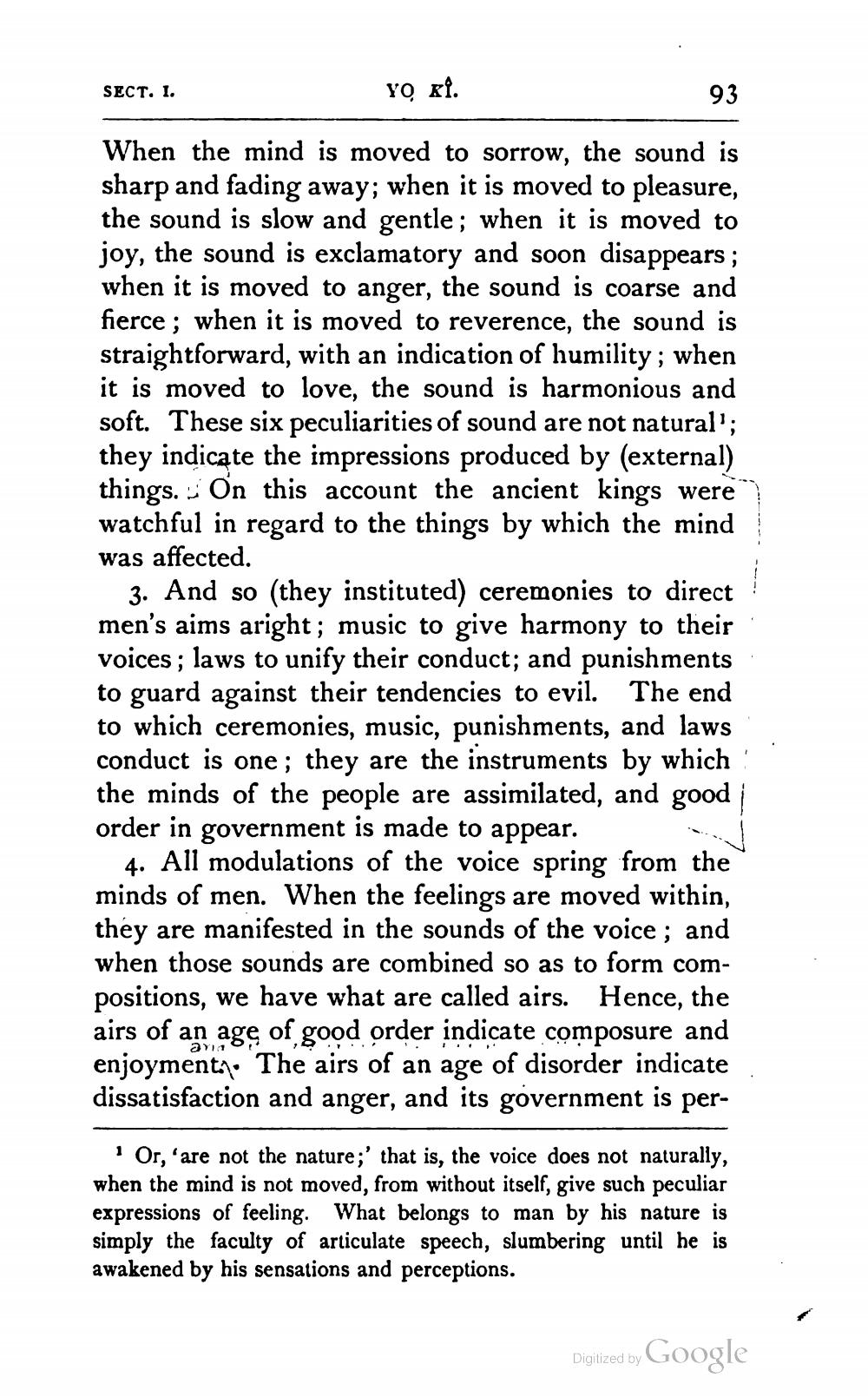________________
SECT. I.
yo ki.
93
When the mind is moved to sorrow, the sound is sharp and fading away; when it is moved to pleasure, the sound is slow and gentle; when it is moved to joy, the sound is exclamatory and soon disappears; when it is moved to anger, the sound is coarse and fierce; when it is moved to reverence, the sound is straightforward, with an indication of humility; when it is moved to love, the sound is harmonious and soft. These six peculiarities of sound are not natural"; they indicate the impressions produced by (external) things. - On this account the ancient kings were watchful in regard to the things by which the mind was affected.
3. And so (they instituted) ceremonies to direct men's aims aright; music to give harmony to their voices; laws to unify their conduct; and punishments to guard against their tendencies to evil. The end to which ceremonies, music, punishments, and laws conduct is one; they are the instruments by which the minds of the people are assimilated, and good order in government is made to appear.
4. All modulations of the voice spring from the minds of men. When the feelings are moved within, they are manifested in the sounds of the voice; and when those sounds are combined so as to form compositions, we have what are called airs. Hence, the airs of an age of good order indicate composure and enjoyment. The airs of an age of disorder indicate dissatisfaction and anger, and its government is per
i Or, are not the nature;' that is, the voice does not naturally, when the mind is not moved, from without itself, give such peculiar expressions of feeling. What belongs to man by his nature is simply the faculty of articulate speech, slumbering until he is awakened by his sensations and perceptions.
Digitized by Google




